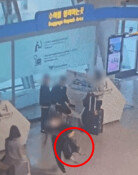Contradictory information from government confuses the public
Contradictory information from government confuses the public
Posted September. 16, 2022 07:34,
Updated September. 16, 2022 07:34
With home prices falling more quickly than the prices of jeonse (long-term housing lease with lump-sum deposit), tenants of many jeonse properties in the Seoul metropolitan area, especially those rented with relatively small amount of deposits, such as row houses and multi-household residences where low-income households and those who are fresh out of college live, are being exposed to the risk of losing their deposit. Yet relevant data provided by the central government and local governments are contradictory, compounding the confusion of tenants.
According to the data released by the Ministry of Land and Transport on Sept. 14 about the ratio of jeonse price to purchase price of houses, the ratio for Seongbuk-gu, Seoul turned out to be 66.5 percent, demonstrating a relatively low likelihood of deposit theft, while the data released by the Seoul City Government on Aug. 23 showed a rather alarming result, 87 percent of the ratio of jeonse price to the housing purchase price. The Land Ministry and Seoul City Government released different figures for the same investigation with a difference of sheer 20 percentage points in their survey, which was announced just 20 days apart. Jongno-gu, Yangcheon-gu, Gangseo-gu, and Guro-gu also demonstrated a difference of 10 percentage points. The agencies attributed the difference in the figures to the difference in the timing and method of investigation. Still, tenants have ended up in a situation where they must make decisions based on contradictory information from government agencies.
When the sum of the mortgage loan and jeonse deposits either amounts to or exceeds the purchase price of a house, a tenant is susceptible to the risk of deposit theft. The average ratio of jeonse price to purchase price for multi-household houses in the Seoul metropolitan area stands at 83.7 percent. The ratio for some multi-household houses in Gangseo-gu, Seoul, Namdong-gu, Incheon, and Ansan city in Gyeonggi Province has surpassed 100 percent, indicating that tenants are likely to be unable to get refunds of their deposit money. If the ratio amounts to 70 to 80 percent, there is a high likelihood that the tenants will not get the full amount of their deposit money when the house is put up for auction owing to the landlord’s default on the mortgage loan.
Even losing just part of jeonse deposit, which takes up the largest share of one’s entire assets, may be detrimental to the survival of working-class households. The government promotes that tenants who subscribe to the Housing Finance Corporation (HUG)’s housing deposit refund guarantee insurance may get a refund even though their landlords do not. Still, the reality is that tenants are denied of subscribing to the insurance because of their landlord’s tax delinquency, which came into light only after tenants sign a jeonse contract.
It is difficult for tenants to accurately estimate the housing purchase price and jeonse price when a steep decline in the purchase price of houses is combined with almost zero real property transactions. Accurate information needs to be available to avoid jeonse deposit theft. The Land Ministry must compile reliable data that is useful for tenants by ensuring that the method of investigating the ratio of jeonse price to the housing purchase price is uniform across government agencies, state and local governments alike. There is an immediate need to introduce measures for tenants to check their landlord’s tax delinquency records before entering into jeonse contracts.







